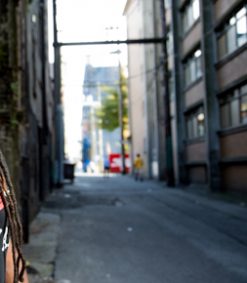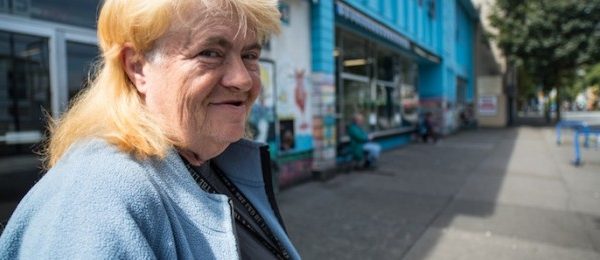VCH Spiritual Empowerment Health Team takes to the streets
Chapels and Christian spiritual care services were established in hospitals at the inception of some of BC’s first hospitals. In recent years the chapel has been replaced with a sacred space to accommodate the diverse religious and cultural rituals. The formerly (mostly) Christian pastoral care departments have also seen a change. At VGH, the service is known as Spiritual* Care & Multi-Faith Services.
The VGH team created the Spiritual Health Empowerment & Education pilot project in the DTES for Interns studying Clinical Pastoral Education. It is the first of its kind in Canada. “We provide a non-religious, inter-faith spiritual care approach in everything we do,” explains Doug Longstaffe, Profession Leader for Spiritual Care at VGH. “The DTES pilot takes interns in to the streets and gives them experience-based education that can’t be found in the classroom, while at the same time advancing the spiritual empowerment of distressed community residents. It’s a win-win.”
Interns work shifts three days a week over a four month term and are there to support the community members in a non-clinical setting. “We’re there to listen without judgement,” explains Philip Tse, Certified Spiritual Health Supervisor-Educator for the program. “We don’t try to push them into anything, we ask them what they want to do with their life.”
John – we’ll call him John for the purpose of this article – is just one example of how the program works.
John fled Africa as a young man during a time of political unrest. His childhood was not an easy one. He ended up in a refugee camp in Germany for a couple of years. From there he made his way to Canada. Things were good at first. He had a wife and kids. But he couldn’t maintain it – his own family life had not prepared him for it. He got in with the wrong people who led him to drugs. He eventually lost everything and has been on the DTES for 10 years. He has been in recovery at times, but always ended up back on the streets in the DTES. It has become his refugee camp in Canada.
“It took John a few times before he opened up to our student,” says Tse. “And when he finally did, he was amazed that anyone wanted to hear his story.” John has come back three times and has started talking about a more promising future. A future where he is clean and can see his kids. His story isn’t over.

The interns also talk with volunteers and staff who work in the DTES. Many of them are ex addicts who are clean and want to help others. When asked if being down there so close to the drug scene can be dangerous in terms of their own recovery, they admit that it can. The thing that keeps them clean is having someone to talk to.
For more information on the program, please read the Brochure for Students and Staff – DTES.
*Spiritual health care is an aspect of health care that focuses on addressing spiritual and religious needs that arise in response to an illness or injury. Spiritual health care is also applicable in situations involving upheaval, moral distress and natural disaster. Spiritual health professionals (SHP) operate throughout the continuum of care, in such places as acute care hospitals, palliative units and residential care homes. They tend to the multicultural and multi-faith needs of BC’s pluralistic population, as well as liaising with local communities and building rapport with their local faith leaders. Spiritual health has a long history and was established at the inception of some of BC’s first hospitals.

